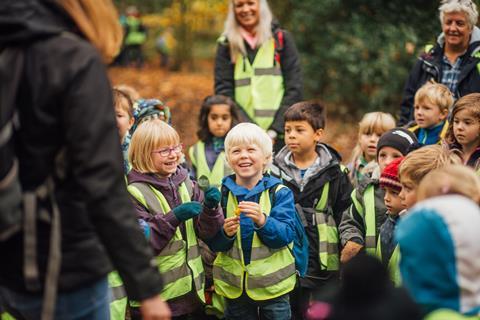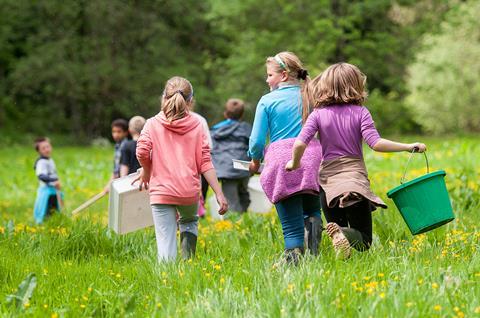Schools are being invited to register their interest in the Nature Friendly Schools project which aims to bring thousands of children closer to nature.

The ground-breaking programme, Nature Friendly Schools, will work in partnership with more than 300 schools in England with the highest proportion of disadvantaged pupils.
Led by The Wildlife Trusts, funded by the Department for Education and supported by Defra and Natural England, the scheme aims to:
- Create new nature areas in school grounds.
- Provide opportunities for pupils to visit local nature reserves or parks.
- Give teachers support and training to increase their confidence and ability to deliver outdoor learning linked to the National Curriculum.
Stephanie Hilborne, chief executive of The Wildlife Trusts, said: “Our children deserve better than to be cooped up all day.
”We know that contact with nature lowers anxiety and is good for learning and social skills, so it’s really exciting to be working closely with schools to build teachers’ confidence in getting their pupils outdoors.”
How do you get involved?
Teachers can fill out a form to register an initial express of interest in the Nature Friendly Schools project. Initially it is focussing on schools with the highest proportion of pupil premium but will be rolling out to other schools in the next two years.
Click here to fill out the form.
Eligible schools may be Primary, Secondary, special, or alternative provision schools.
Nature Friendly Schools will be working in partnership with YoungMinds which campaigns to help children and young people’s mental health; Groundwork which transforms young people’s lives in the most disadvantaged communities; the Sensory Trust which helps to ensure children with special needs enjoy access to nature; and the Field Studies Council which inspires environmental education through first-hand experiences on residential courses and with Wildlife Trusts.

Beverley Gormley, Nature Friendly Schools project manager, explained: “Research shows that being outdoors and experiencing nature, even for small periods of time, improves happiness, concentration and both physical and mental health.
”This is why it is so important that we can help to provide teachers with the expertise, training and resources needed to incorporate outdoor learning into their schools and benefit pupils.”
How does the project work?
An education officer will work with schools to provide training and practical support for staff, providing ideas for curriculum-linked activities, games and advice on how to overcome the challenges of teaching outdoors.
They will also help schools access local green spaces, highlighting learning opportunities that are not possible on school grounds.
In addition they will improve school grounds, creating natural outdoor spaces with wildflower patches, sensory gardens and container ponds.
For more information visit www.wildlifetrusts.org/learning/nature-friendly-schools










